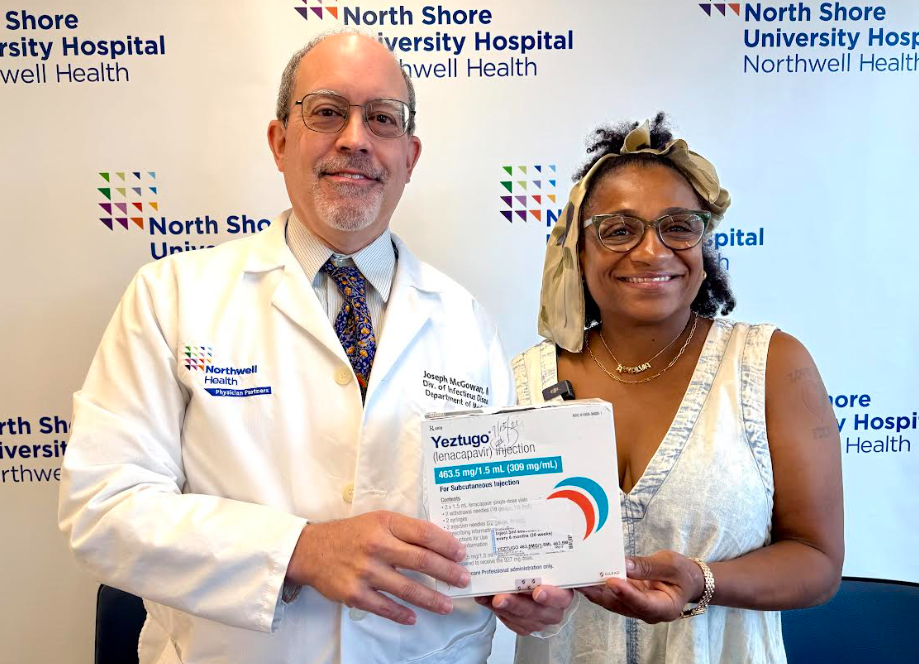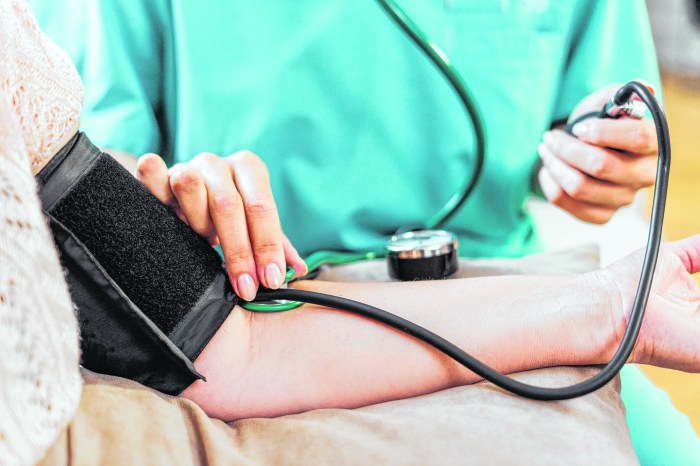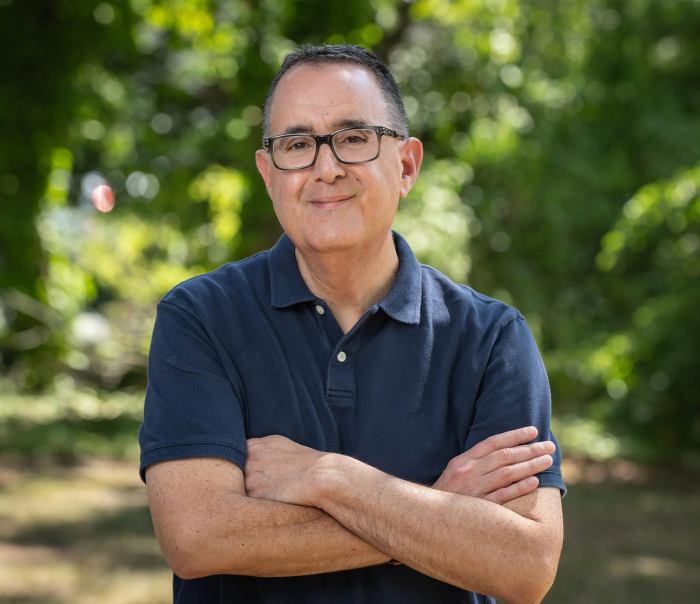Northwell Health is now offering a new injection that promises to reduce the risk of HIV and AIDS. Doctors say it will combat the disease’s ongoing spread throughout the country.
Over 100,000 people live with HIV in New York. Nonprofits like Options For Community Living, a support agency for those with HIV and other illnesses, reported a 20% spike in Nassau and Suffolk in 2023. The increase is possibly due to a lack of testing during the COVID-19 pandemic.
To combat the deadly virus and AIDS, which can evolve from it, American biopharmaceutical company Gilead Sciences Incorporated has developed Yeztugo, a pre-exposure injection that only needs to be administered twice a year.
Joseph McGowan, who oversees the Center for AIDS Research and Treatment at North Shore University Hospital in Manhasset, describes the injection as “the holy grail” in preventing initial contraction of the virus.
“Demand is going to be significant,” said McGowan in a press release.“It’s a medication that is easy to take, is highly effective and won’t have to rely on adherence.”
Queens Resident Evelyn Lampkin has been a patient of McGowan since 2013 and says she will urge her viewers across her social media platforms and radio show, “Living Positively,” in favor of the new treatment. Lampkin said it could’ve changed her life if brought into existence sooner, with her contraction of AIDS in 2010.
Lampkin used therapeutics to help reduce the disease’s impact, and now she’s an advocate for women living with the same illness through her aforementioned platforms, calling for more social reform around HIV and AIDs, with an emphasis on the need for more effort towards pre-infection prevention.
“I think with this Yeztugo it kind of brings us together,” said Lampkin. “It brings the people who are not HIV positive together with the people who are HIV positive because if someone chooses to take the Yeztugo, they’re saying I’m going to take this to protect my body, so this HIV is not transmittable to me; therefore, that should lower the stigma…and the idea of HIV, contracting it or it being so horrific.”
Yeztugo, the brand name for the medication Lenacapavir, was approved by the FDA on June 18 and is designed to be taken every six months. The injection is the first of its kind, disrupting the replication phase of HIV at multiple stages via targeting its protective protein shell while it attempts to enter nearby white blood cells to make potentially thousands of copies.
The new injection has been tested since 2021, and two rounds of studies have been conducted. The first study was conducted in 28 locations in South Africa and Uganda, and the second expanded to 91 locations in countries such as the United States, Argentina, Puerto Rico, Thailand, Brazil, Mexico and Peru. Both studies showed that the injection was 99.9% effective at preventing the contraction of HIV.
According to Darrin London, the clinical lead of Northwell’s Community Drive Sexual Health Program in Manhasset, Northwell has been monitoring Yeztugo’s progress and testing, excited about what they saw as a potential “game-changer.”
HIV, first discovered in New York in 1981, has had a history of other medications made to prevent its contraction, referred to as Pre-Exposure Prophylaxis or PrEP.
The first being Truvada, FDA approved in 2004, as well as later Descovy, which are daily oral tablets to prevent the virus. The first long-acting injectable HIV PrEP medication, Apretude, was approved in 2012 with a re-injection every two months.
London said moving forward, patients will be informed about all the potential PrEP medications, and from there they can see which one best suits them, with Yeztugo working well as an alternative if the daily pill’s commitment or potential side effects are not preferable, as well as if an injection every six months is preferred over every two.
According to a 2023 Centers for Disease Control and Prevention data report, only about 36% of the 1.2 million people eligible for PrEP use it; however, its use shows a steady increase. Yeztugo’s lower need for frequent re-injections and high effectiveness could potentially help continue increased use.
“We’re trying to inform people, especially here on Long Island, that we don’t want to see increases in HIV infection, and we have medications to prevent that, and we have four different medications now,” said London. “There are a variety of ways in which we can prevent HIV infection, and we want to work with the patient to find out which is best for their lifestyle and how they can be most compliant with it.


































